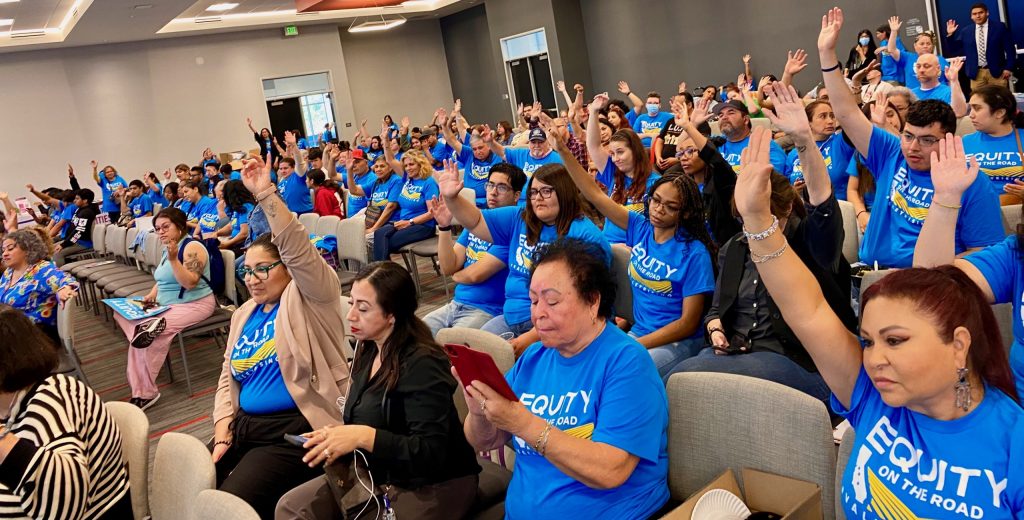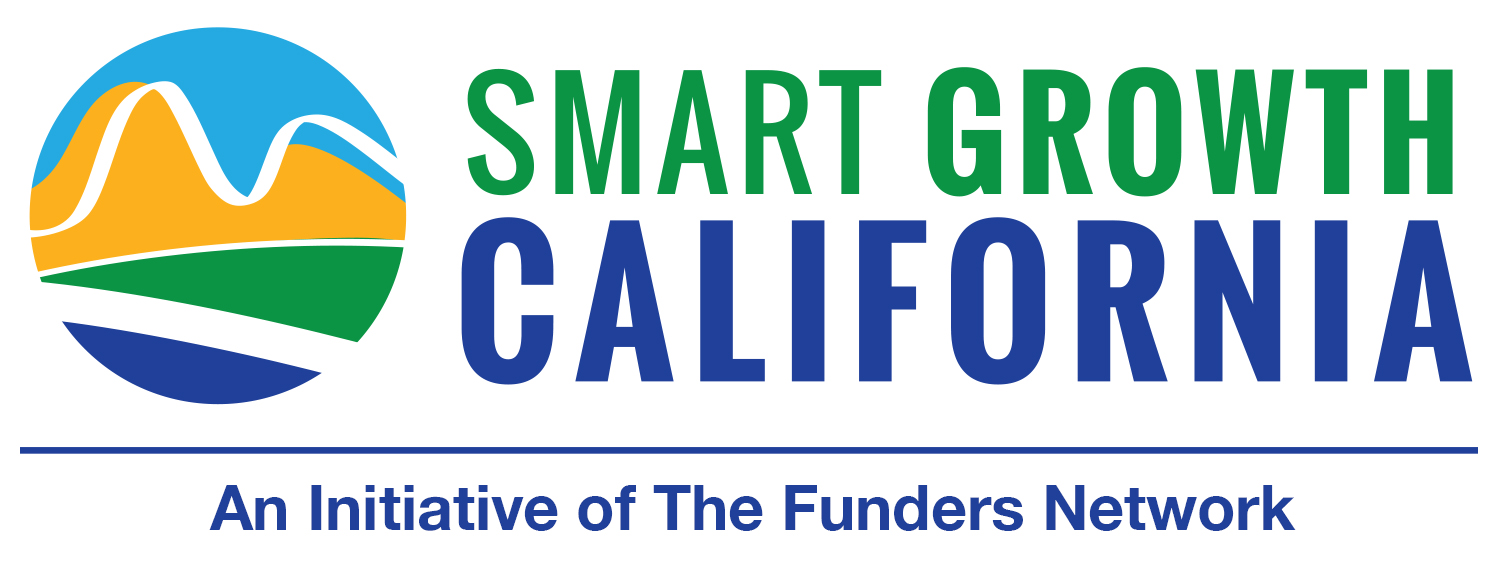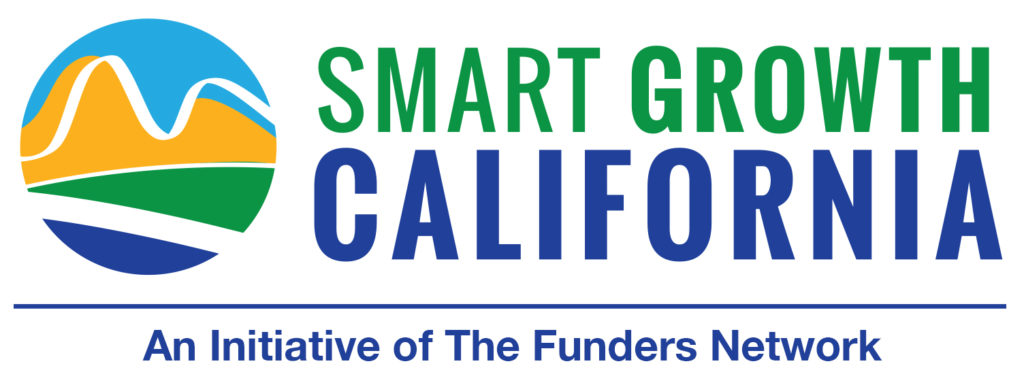
I walked into the Bakersfield meeting not sure what to expect, other than it was the first in a series of town halls crisscrossing the San Joaquin Valley – and that more than a thousand people were expected to show up.
I’d spent the morning riding the train from Sacramento to Bakersfield, reading a book about the San Joaquin Valley’s history of resilience and contradictions. Passing towns and farmland, I thought about how the land had been turned into agricultural gold from taxpayer–funded irrigation projects that created significant wealth for large landholders and corporate farms.
Such feats of water conveyance transformed arid land into the nation’s breadbasket. Today, the Valley also delivers food insecurity and tainted drinking water to many who work the land. This is the birthplace of almost diametrically opposed movements – the farm labor organizing of César Chávez and Dolores Huerta and the most conservative politics in California.
Yet as the town hall meeting started inside an auditorium at Bakersfield community college, the Valley’s paradoxes faded. The crowd was 500 strong, a singular vision of unity and strength. This was Equity on the Road.
Bakersfield – Night One
As coordinator of the San Joaquin Valley Funders Collaborative (SJVFC) for the past year, I’ve heard a lot about different grants under way throughout the vast Valley. But this was my first in-person look at a hallmark program created by the Sierra Health Foundation, a founding SJVFC member.
Most years, The Center at Sierra Health Foundation brings thousands of people to the Capitol in Sacramento for Equity on the Mall, where people from distant corners of the Valley rally for change.
The foundation decided to flip the script this year and hit the road, with Bakersfield as stop one.
The auditorium was filled with babies, grandparents and entire families wearing bright blue t-shirts. Speaking in Spanish and English, these activists, farm workers, volunteers, teachers and students shared stories about their fights for improved health care and working conditions, higher performing schools and fairer immigration policies. Many are with non-profits supported by the Sierra Health Foundation and this was a chance for grantees to collectively raise their voices.
“I’m proud y’all showed up,” Ucedrah Osby, executive director of Community Interventions, a Bakersfield social justice organization, told her neighbors and colleagues in the crowd. “This is beautiful and very necessary. Now we need to hold people accountable.”
With a looming, $73 billion state budget deficit, cuts are coming statewide. As a chronically under-funded area, Osby and others said, the San Joaquin Valley needs additional – not reduced – investments.
“We don’t want the work you’ve done over the last ten years to be set back simply because folks thought you weren’t watching,” Chet Hewitt, Sierra Health Foundation’s president and CEO, told the crowd.
Randy Villegas, a third-generation activist from in Bakersfield, urged people to organize, then organize some more. A professor at the College of the Sequoias, Villegas recently won a seat on the board of the Visalia Unified School District, where his values were quickly put to the test.
“Colleagues on the Visalia Board of Education thought climate change lessons should be eliminated. I was the deciding vote against that,” he said, prompting applause.
“They say that it takes a village,” said Villegas, who was raised in the region. “But for me, it took a Valley.”
In between speakers, Folklorico dancers performed. And behind tables laden with food and t-shirts were familiar faces from the Sierra Health Foundation – Bryan Osorio, Reyna Villalobos, Kendra Lewis, Kaying Hang and Chet Hewitt, among others. Proverbial sleeves rolled up, they greeted visitors, dished up dinner for everyone and handed out shirts.
As the last meal was eaten and the final speaker concluded, Reyna Villalobos, who leads the Center at Sierra Health, took the stage.
Speaking first in Spanish, and then in English, she thanked everyone for showing up.
“We know we can’t do this work alone,” she said. “It takes everyone coming together. Sí, se puede. The Valley is rising.”
Madera – Night Two
Another several hundred residents and advocates gathered in Madera the very next night for a town hall that focused on similar themes, but with different details.
“Look at this beautiful tapestry of a community!” Lourdes Medina of Services Immigration Rights and Education Network (SIREN) told audience members. “The immigrant story is the story of the United States of America. As immigrants, children of migrants, we keep building.”
Other speakers included Dan O’Connell of the Central Valley Partnership (and the author of the book I was reading on my train ride). He asked the crowd whether they wanted to see futures of “equity and justice, or inequity and injustice?”
Then he told the story of the latest battle over water in the San Joaquin Valley.
The City of Fresno and the League of Women Voters of Fresno recently voted to sue Fresno County over its proposed new General Plan, which they say will worsen drinking water quality and air pollution while failing to provide enough housing residents can afford.
“After being cheated for so long,” O’Connell said, the question to ask is “What do community benefits look like?”
Stockton – Night Three
It was a picture-perfect Spring evening as the last event kicked off in Stockton. The foundation’s Bryan Osorio stood patiently on stage waiting to emcee – as he had the previous nights – while several hundred folks ate and chatted.
Osorio leaned into the mic and slowly counted down from ten, akin to a friendly, yet in-command teacher. Voice raised, he announced: “Welcome to Equity on the Road!”
Whoops and hollers from the audience filled the room. The last segment of this San Joaquin Valley odyssey was under way.
“We knew it was important to come to you in the place you work and live, to imagine what a region can look like with clean air, water and affordable housing,” Kaying Hang, president of The Center at Sierra Health Foundation, told the crowd.
“Change begins in places like this.”
As another round of inspiring speakers told stories of their work, I reflected on something I’ve learned: The San Joaquin Valley is deeply imprinted by a long, often relentless, history of exploitive land and labor practices that have not (yet) been eradicated. The latest chapter in this history is being written in real-time around enormous solar farms that may – or may not – bring lasting benefit to those who call the Valley home.
But it’s also true that from Lamont to Lodi and places in between, some things are changing for people who’ve been marginalized. They are gaining power, winning elections, raising their voices and working to transform their lives and their communities.
The shift is fueled by the strength and willpower of Valley residents, and fortified by investments from funders like those in the San Joaquin Valley Funders’ Collaborative, and others.
The issues at stake represent the corners of what every community wants: Good schools and safe working conditions; air that’s clean to breathe and water that’s drinkable when you turn on the tap. Is that so much to ask?
Sí, se puede.
Diana Williams is the coordinator of the San Joaquin Valley Funders Collaborative, which promotes healthy, equitable communities and sustainable natural systems in the San Joaquin Valley. The Collaborative is a working group of The Funders Network’s Smart Growth California. To learn more about the Collaborative, contact Diana@fundersnetwork.org.

